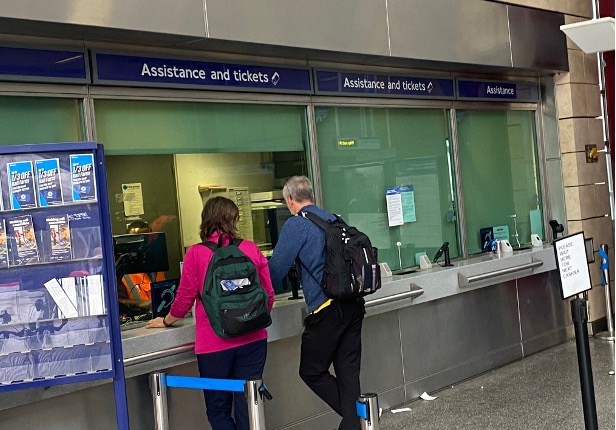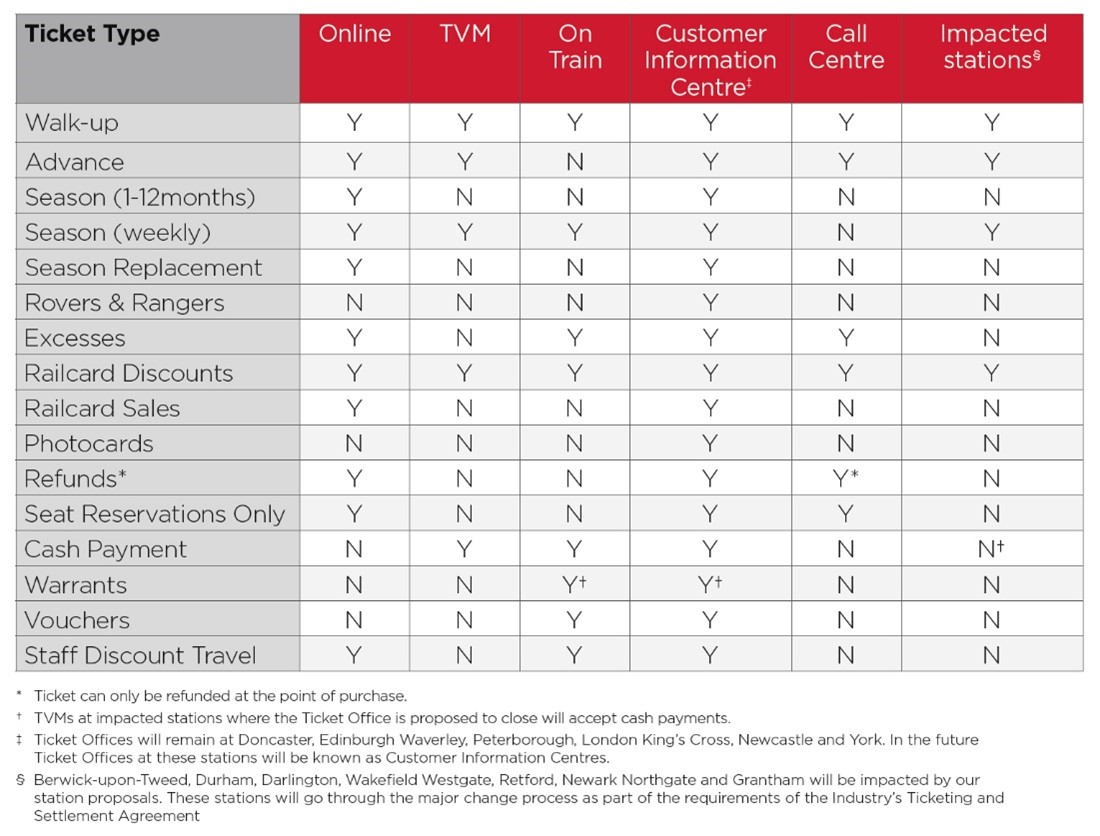This is Blog No 35
Manchester’s Andy Burnham and other Mayors have vented their fury at a public consultation that was almost finished before most people had even noticed it had begun.
They claim that 21 days is far too short to engage rail users properly in changes that may have serious implications for many people.
And it’s mid-July, so lots are on holiday!

The answer is that this is not a normal process. In fact, there is real confusion as to who is in charge of this exercise. The proposed changes, which envisage closing between 900 and 1000 ticket offices and redeploying their staff to be out and about on station platforms being helpful to customers, are being sought by 15 separate Rail operating Companies, and is masterminded by their collective body – the Rail Delivery Group (RDS). So far – so straightforward.
Except that the process that has been adopted is that they do not consult the public. For these purposes, their relationship is with the Passenger Representative Body, Transport Focus or London Travelwatch. If you respond directly to a Train Operating company, they will not even bother to read your submission!
That is because the process requires Transport Focus and its London equivalent to seek the views of the public in order to form a judgement as to whether to accept the operator’s proposal or whether to object to it. If it objects and the Train Operating Company insists, the decision gets escalated to the Sec of State for Transport, But for Transport Focus, It has to be yes or no; a binary choice with no possibility of saying “Yes … if …” or “No …but”. Neither is it clear whether these decisions will be taken in respect of indiviual stations or for the whole slate of proposed changes for a Train Operating Company as a whole.
So, the consultation we are all seeing actually is a Transport Focus exercise to enable IT and no-one else to take a decision on whether or not to oppose a specific proposal. The process dates back to a 1995 Ticketing and Settlement Agreement which envisaged the occasional closure with a handful of passengers who would write letters of comment in the days when mass public consultations were unheard of. We are all responding to Transport Focus – but in reality the consultation belongs to the Rail Delivery Group.
And here it gets interesting, because all 15 consultations are different. Some, like LNER’s are glossy and containing helpful graphics as illustrated; others provide elaborate narratives and explanations, mostly quoting the national statistic that 88% of tickets are bought online – though fewer have the figures for their own passengers. Then. there are a range of Frequently Asked Questions (FAQs) – usually about 10, though East Midlands Rail has 33, including my personal favourite:
Why are you cutting people at stations when you could cut unnecessary profits to largely foreign-owned train operators?

Some Operators refer to and in some cases publish draft Equality Impact Assessments, sometimes prepared on a station-by-station basis, though it is unclear to me whether they will be used by Transport Focus to take its decisions whether to approve or oppose a proposal. Remember that is the decision being consulted upon.
In summary, depending upon how diligent the potential consultee wishes to be, there is a fair amount of information that can be obtained, though it’s all different and good luck if you regularly use stations from three or four different Operating Companies. In any dispute over whether the consultor has satisfied the Gunning Two principle of providing sufficient information about the proposal as to allow the consultee to give it intelligent consideration, there could be 15 different answers!
Having now explained the consultation, let us look at the information that will be gathered from the hundreds of thousands of us who might be tempted to participate. It consists of five data fields. Two for your first and last name. One is your email address and then they want to know what station’s proposed changed arrangements you’d like to comment upon. Just one. Then there is a free-text comment box, and that’s it.
No-one wants to know if you are young or old, male or female, disabled or able-bodied, a daily commuter or an infrequent leisure-traveller. Gathering demographics has clearly been ruled out. This is clearly going to be a numbers-game. And to be fair to the industry, it has standing machinery to consult stakeholder groups on matters like accessibility which will, no doubt give its opinions as part of this process.
It just feels as if the public consultation part is tokenistic and not a serious attempt to assess the true impact on people. As a regular user of Biggleswade station It wants to know how I will be personally affected but has no interest in my views about how my daughter-in-law will cope when she travels with her three small children and a buggy. As for my views on the wisdom of the whole strategy of closing ticket offices on a promise of platform-based staffing that could easily disappear upon first sight of an efficiency-seeking consultant from McKinseys, they have no interest.
And here comes the real problem with this consultation. It – ever so subtly – suggests that the industry wants to know our views about its wholesale nationwide change of station-based customer support. But to do so, it is using a process that was only designed for the odd occasional change once in a while. They are not consulting on this big once-in-a-generation change but need to be seen to be asking the public. It’s a con.
I have sympathy with Transport Focus for it is merely the go-between in a process that should not have been used. Why on earth did no-one have the gumption to notice that the world had changed since 1995, and suggest an alternative? When this was agreed, no one in the world had ever answered a single consultation question online? Today, thousands do so daily.
When the politics begins to become difficult, I suspect that Government Ministers will desert the Rail Delivery Group quicker than you can say “ULEZ saved us in Uxbridge”. So my recommendation to Transport Focus would be to go public immediately saying that the scale of the response requires an extension of a further 21 days whilst someone helps the RDS dig itself out of a rather deep hole.
Not for the first time an industry will discover that a botched consultation is an effective way to make your objective much harder – if not impossible - to achieve.
Rhion H Jones LL.B
See Rhion's Speeches Talks and Presentations
For More like this - free of charge: join the mailing list now
Leave a Comment
I hope you enjoyed this post. If you would like to, please leave a comment below.